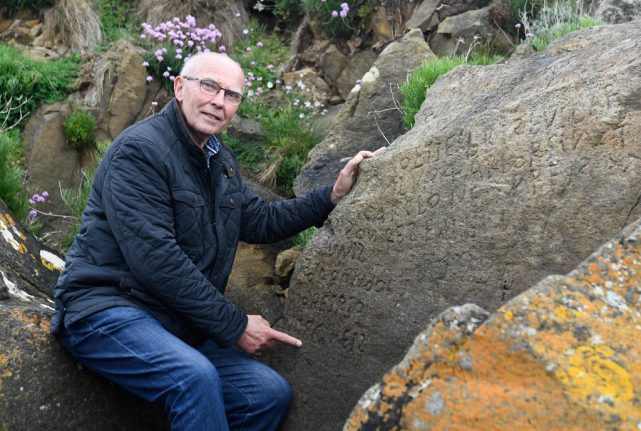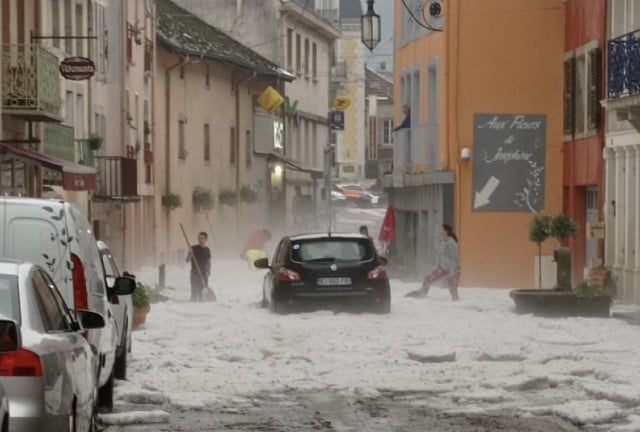Lapped by the waves of the Atlantic and visible at only low tide, the mysterious rock inscription is believed to be centuries old and so far undeciphered, lurking outside a French village in Brittany.
The town hall in Plougastel-Daoulas in the Finistere region of Brittany in northwest France is now offering a €2,000 reward for anyone who can decrypt the sequence of letters and symbol.
READ ALSO
- France's strange Garfield phone beach mystery
- Who is killing the seals on the beaches of northern France?

Detail of the mysterious carving on the rock. Photo AFP
Could the small boulder have been used for a love letter whose secret has remained untouched for centuries, or a proud note left by an
eighteenth-century fort-builder? Or something even more mysterious?
Locally, the rock is sometimes compared to the Rosetta Stone, the great ancient Egyptian stele now in the British Museum whose inscription was partly deciphered by the French Egyptologist Jean-Francois Champollion.
The authorities in Plougastel-Daoulas hope that their competition will shed light on the enigmatic piece of history.
“This inscription is a mystery and it is for this that we are launching the appeal,” said Veronique Martin, who is spearheading the search for a
code-cracker.
The rock, which is around the size of a person, is accessed via a path from the hamlet of Illien ar Gwenn just to the north of Corbeau point.
The inscription fills the entirety of one of its sides and is mainly in capital letters but there are also pictures including a sailing boat. There are two dates, 1786 and 1787.
“These dates correspond more or less to the years that various artillery batteries that protected Brest and notably Corbeau Fort which is right next to it,” she said.
On a first glance the inscription defies interpretation.
“ROC AR B… DRE AR GRIO SE EVELOH AR VIRIONES BAOAVEL… R I OBBIIE: BRISBVILAR… FROIK…AL,” read parts.
“There are people who tell us that it's Basque and others who say it's old Breton,” said the mayor of Plougastel-Daoulas Dominique Cap.
“But we still have not managed to decipher the text,” the mayor told AFP, adding the rock was first spotted around three-four years ago.
The appeal to crack the code has been made to linguists, historians, academics, students or simply people who enjoy code-breaking as a hobby.
A jury will then meet to choose the most plausible suggestion and award the prize.
“There are a lot of words, they're letters from our alphabet, but we can't read them, we can't make them out,” said the municipal councillor in charge of local heritage Michel Paugam.



 Please whitelist us to continue reading.
Please whitelist us to continue reading.
Member comments